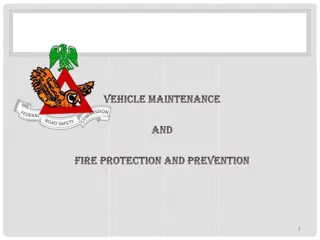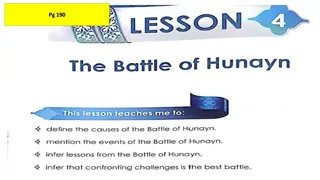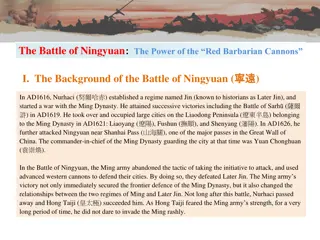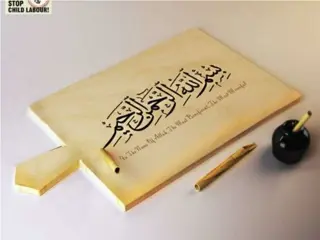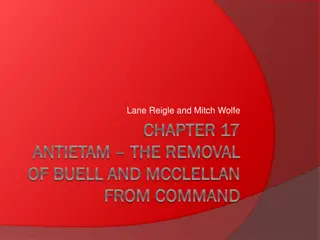Analysis of Shah Bano Case - Legal Battle for Maintenance Rights
Shah Bano, a Muslim woman, fought for maintenance rights after her husband divorced her through triple talaq. The case raised debates on applicability of Section 125 of Criminal Procedure to Muslim women and the interpretation of Islamic law. Despite initial resistance, the Supreme Court ruled in favor of Shah Bano, highlighting the importance of gender equality in maintenance laws.
Download Presentation

Please find below an Image/Link to download the presentation.
The content on the website is provided AS IS for your information and personal use only. It may not be sold, licensed, or shared on other websites without obtaining consent from the author. Download presentation by click this link. If you encounter any issues during the download, it is possible that the publisher has removed the file from their server.
E N D
Presentation Transcript
ANALYSIS OF SHAH BANO CASE
Shah Bano was married to Mohd. Ahmad khan (renowned lawyer in Indore) in 1932 and had 3 sons and 2 daughters. In 1975 at the age of 62 her husband thrown her out with children as he married a younger woman. Her husband gave her maintenance for two years and than stopped. She claimed maintenance under Cr.PC 1978. in consequence of that in November, 1978 her husband pronounced triple talaq and divorced her. in April
Her husband alleged that hence he pronounce irrevocable tripple talaq and now she is not her legal wife therefore he is not accountable to any maintenance. Further Mohd. Ahmed Khan also claimed that he had fulfilled his obligations under Islamic law because according to interpretation of the Shariat, the Muslim husband enjoys the privilege of being able to discard his wife whenever he chooses to do so . the fundamentalist
The claims are not been accepted and local court ( magistrate) directed Mohd. Ahmad to furnish her Rs. 25 per month to Shah Bano in a form of maintenance. Shah Bano in July 1908, apart from this, made a plea to High Court of M.P, to alter the amount of maintenance to Rs. 179 every month which was granted.
Mohd. Khan took the case to the Supreme Court, demanding that the relatives of Shah Bano should take responsibility for her. He proceeded to take the case to the Indian Supreme Court, arguing that the lower court rulings violated his rights as a Muslim by inhibiting his adherence to the Shariat as under Islam he is not liable to maintain her..
The most controversial issue raised before the court in this case was : Whether Section 125 of Criminal Procedure is concerned will be applicable to muslim women or not . the Code Of 1. . Whether the liability of maintain his payment of mahr . husband to 2. divorced relinquished after
The decision of lower court was uphold by the Supreme Court and banished the plea of Mohd. Ahmed Khan. That the Cr.PC is a territorial law and applicable to all irrespective of religion. The personal law in this regard was considered as Ruthless in its Inequality by the Apex Court. The Supreme Court ruled that Mohd. Ahmed Khan had violated section 125 of Cr.PC which decrees that a person who, having sufficient means neglects or refuses to maintain his wife who is unable to maintain herself can be forced to do so by the court or face a fine and/or imprisonment.
Supreme Court in this case duly held that, since responsibility of Muslim husband towards her divorced wife is limited to the extent of " Iddat" period , even though this situation does not contemplates the rule of law that is mentioned in Section 125 of CrPc.,1973[4]. According to Supreme Court this rule according to Muslim Law was against humanity or was wrong because here a divorced wife was not in a condition to maintain herself.
The court finally concluded that the husbands legal liability will come to an end if divorced wife is competent to maintain herself. But this situation will be reversed in the case when wife is unable to maintain herself after the Iddat period, she will be entitle to receive maintenance or alimony under Section 125 of Cr.PC.
Chief Justice Chandrachud quoted verses from Quran to show there was no conflict between section 125 of Cr.PC and Muslim personal. Law for divorced woman also a provision should made with fairness in addition to her dower. The is the duty incumbent on the reverent . It was held that the purpose of section 125 is to securing social justice to women who are from poorer classes.
After the judgment there was a massive protest against it by the Muslim Leaders and the community. They contended the judgment is on conflict with the Quran and Islamic laws. There was Congress Government in the centre at that time. Due to the huge protest the Parliament of India in 1986, (decided to enact the Muslim women (Protection Of Rights Of Divorce) Act, 1986. The main objective of this act was to protect the right of the divorced Muslim women and or to those who have got divorce from their husband's.
According to this act, Muslim divorced women should be entitle to adequate and reasonable amount of maintenance till the Iddat period. When a divorced women maintains a child born by her anytime before or after the divorce, the husband is under legal obligation to provide a certain amount of maintenance for the child to a period of 2 yrs. From the birth date of a child.
The women is also authorized to obtain "Mahr" or "dower" and receive back all the properties or estate which is provided to her by her parents, friends, relatives, husband or husband's friends. If such advantages are not received by the divorced Muslim women from her former husband, she can apply to magistrate for ordering him to provide her with maintenance/alimony or amount of "Mahr" or dower or her estate or properties.
In the case of K. Kunhammed Haj vs. K. Amina (1995) cr. LJ 3371 the court gave liberal judgment and held that a muslim woman is entitle to fair and reasonable maintenance even after the iddat in addition to the maintenance during iddat Bano rulling has been merely being substituted by the Act which is no manner takes away the right of maintenance under sectin 125 of Cr.PC. and that the Shah
RELEVANT PROVISIONS OF MUSLIM WOMEN ACT, 1986 MAINTENANCE DURING IDDAT Divorced Muslim women is entitle to fair and reasonable maintenance. She is also entitle to get maintenance for the children born before or after divorce till 2 years. Children has a separate maintenance after that 2 years. right to claim
MAINTENANCE AFTER IDDAT If the divorced remain unmarried for the period after iddat the liability of her maintenances lies of the relatives who will inherit her property. In absence of any of such relative the liability will be shifted to State Waqf Board.
DOWER AND OTHER EXCLUSIVE PROPERTIES OF WIFE The muslim divorced women is entitle to her dower and any property given to her before or after marriage by her parents or husband exclusively. OPTION OF CRIMINAL PROCEDURE CODE, 1973 The Act does not bar the application under of maintenance under Cr.PC. The parties may by an affidavit declare that they may wish to govern by Cr.PC or Act of 1986.
CASES PENDING BEFORE CR.PC Any pending cases under Cr.PC will be decided under this Act (after enactment)unless the parties elect otherwise. ORDER ALREADY PASSED UNDER CR.P.C The Act of 1986 is not retrospective therefore orders already passed under Cr.PC will not be affected by the Provisions of this Act.
CONSTITUTIONALITY OF THE ACT, 1986 In the case of Danial Latifi Vs. Union of India (2001) 7 SCC 740 the Supreme constitutionality of the act. The court observed that the intention of the parliament is not to deprive a woman for claiming maintenance under section 125 of CR.P.C on the ground of religion. As the option is given under the act as to the option under which law they want to govern themselves. Similarly again in the decision of Danial latifi was reaffirmed by the Apex court in Sabra Shamim vs. Maqsood Ansari (2004) 9 SCC 616. Court upheld the

 undefined
undefined



























